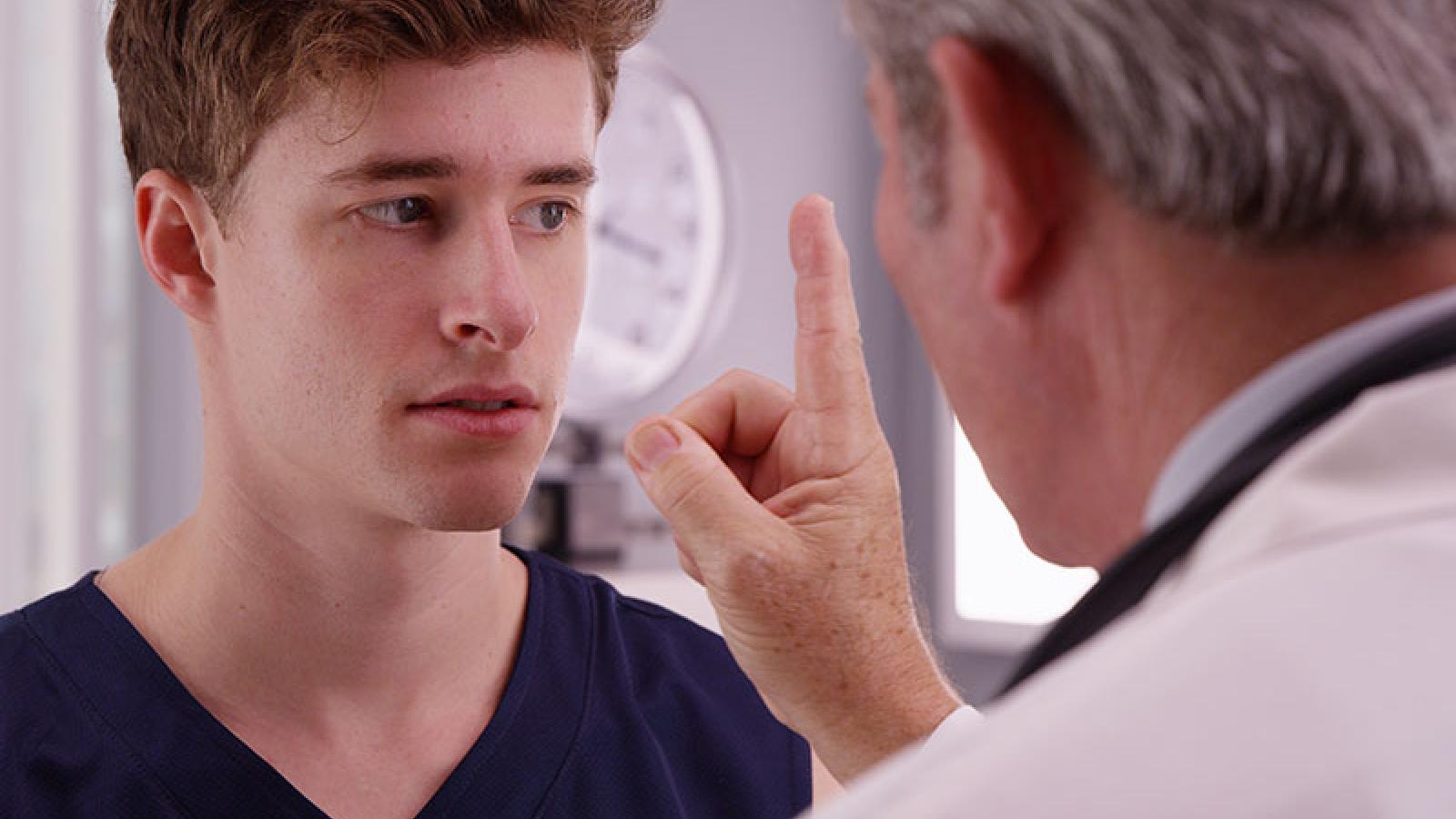A concussion, a form of mild traumatic brain injury (TBI), can have lasting effects on a person’s cognitive and daily functioning. Even when physical symptoms seem to fade, the lingering mental and emotional challenges can disrupt everyday life. Fortunately, cognitive therapy offers a scientifically supported path to recovery. At Bayhealth Outpatient Rehabilitation Centers in Dover and Milford, Delaware, patients can access specialized cognitive treatment from certified speech-language pathologists to rebuild brain function and restore quality of life.

What Is a Concussion and Why Is Cognitive Therapy Important?
A concussion occurs when a bump, blow, or jolt to the head causes the brain to move rapidly back and forth. This sudden movement can disrupt normal brain function and lead to symptoms such as memory loss, difficulty concentrating, confusion, and fatigue. While many recover with rest and time, some individuals experience lingering symptoms that interfere with school, work, or everyday activities.
Cognitive therapy, particularly when led by licensed speech-language pathologists, focuses on rehabilitating the brain’s thinking processes. This includes improving skills related to:
-
Memory
-
Attention
-
Executive function (e.g., problem-solving, planning)
-
Language
-
Visuospatial awareness
By addressing these key areas, cognitive therapy helps patients retrain their brains and regain the cognitive sharpness they once had.
Personalized Cognitive Treatment at Bayhealth
At Bayhealth’s Outpatient Rehabilitation Centers in Dover and Milford, patients diagnosed with concussions receive customized cognitive rehabilitation programs. Ashley Jones, MS, CCC-SLP, a certified advanced speech-language pathologist at Bayhealth, works closely with each patient through every stage of recovery.
Initial Evaluation and Goal Setting
When a patient arrives for treatment, a comprehensive cognitive-linguistic evaluation is conducted. This assessment identifies the individual’s specific impairments and forms the basis of a personalized treatment plan. “Our goal is to help patients return to the level of function they had before their injury—whether that’s being a student, a working professional, or simply handling daily tasks,” says Jones.
Tailored Exercises and Progress Tracking
Cognitive therapy sessions are tailored to each patient’s needs. These may include memory drills, attention-building exercises, language comprehension tasks, and problem-solving activities. Patients also learn compensatory strategies to cope with any lingering deficits—such as using planners or visual aids to manage tasks.
Bayhealth’s clinicians track patient progress carefully, adjusting treatment approaches as cognitive abilities improve. The focus is always on real-life outcomes: returning to class, managing finances, or participating fully in community life.
Understanding the Invisible Symptoms of a Concussion
Many individuals who have experienced a concussion appear outwardly fine. However, the cognitive effects often don’t emerge until they resume regular activities. Some common post-concussion challenges include:
-
Inability to concentrate in meetings or lectures
-
Forgetting instructions or details from reading or conversations
-
Difficulty performing tasks like budgeting or using technology
-
Feeling mentally “foggy” or exhausted after minimal mental effort
These symptoms can be frustrating and even debilitating, but they are not uncommon. Cognitive rehabilitation plays a critical role in helping patients adapt, recover, and regain control of their daily lives.
Reintegration into Daily Life
The ultimate goal of cognitive therapy is reintegrating patients into their functional environments. Whether the individual is a high school student, a teacher, or a retiree managing their home, the treatment is designed to restore autonomy and confidence.
Jones explains, “There are many tools and techniques we can use to help people succeed again—at work, in school, or in everyday life. We want our patients to feel empowered and supported as they rebuild their independence.”
Who Needs a Referral for Cognitive Therapy?
To begin cognitive treatment at Bayhealth, patients need a referral from a qualified medical professional. This includes:
-
Pediatricians
-
Primary care providers
-
Neurologists
-
Neurosurgeons
Bayhealth makes this process easy and collaborates closely with referring physicians to coordinate care.
Advanced Tools: ImPACT™ Testing for Athletes
In addition to cognitive therapy, Bayhealth offers Immediate Post-Concussion Assessment and Cognitive Testing (ImPACT™). This specialized tool is used to evaluate athletes’ cognitive performance before and after a concussion. ImPACT testing helps determine when it’s safe to return to sports and can guide recovery plans.
Testing is available at several Bayhealth Wellness Centers located in local high schools and at the Bayhealth Outpatient Rehabilitation Center at Kent Campus.
Frequently Asked Questions:
What is cognitive therapy for a concussion?
Cognitive therapy is a structured treatment designed to help individuals recover brain functions such as memory, attention, and reasoning after a concussion.
How long does it take to recover from a concussion with cognitive therapy?
Recovery time varies by individual, but many patients see significant improvements within a few weeks to a few months with consistent therapy.
Do I need a referral for cognitive therapy at Bayhealth?
Yes, a referral from a primary care physician, neurologist, neurosurgeon, or pediatrician is required to begin therapy at Bayhealth.
Is cognitive therapy covered by insurance?
Most health insurance plans cover cognitive therapy if it’s deemed medically necessary and prescribed by a licensed physician. It’s best to check with your provider.
What are the signs I might need cognitive therapy after a concussion?
If you’re experiencing difficulty with concentration, memory, problem-solving, or everyday tasks after a head injury, cognitive therapy may be beneficial.




